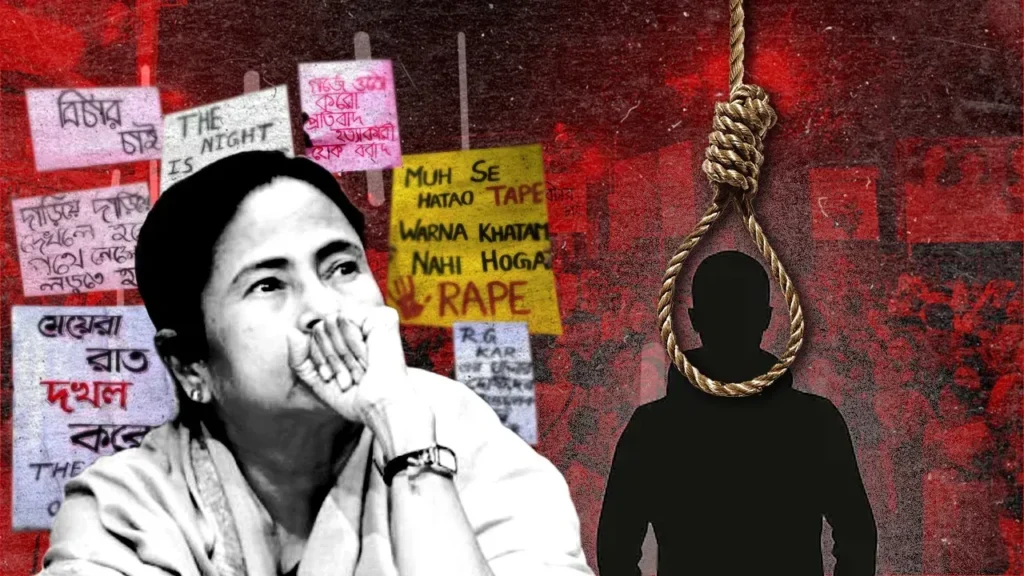In a significant move to address the rising concerns of sexual violence, the West Bengal Legislative Assembly will witness a special two-day session commencing Monday. On the agenda is a proposed bill by Chief Minister Mamata Banerjee, which seeks to impose the death penalty for those convicted of rape within ten days. This initiative comes amidst intense scrutiny and opposition, especially from the Bharatiya Janata Party (BJP), who have questioned the motivations behind the legislation.
Special Session of the West Bengal Assembly
The assembly’s proceedings will begin with a tribute to deceased individuals before being adjourned. The real debate is expected to take place on Tuesday when Mamata Banerjee’s government presents the anti-rape bill. Opposition parties, particularly the BJP, have criticized this move, labeling it as politically motivated. They demand that the deceased victim be honored in the assembly, further insisting that the matter should not be used for political gain.
Background on the Call for Stronger Punishments
The push for stringent legal measures follows a tragic incident involving the rape and murder of a trainee doctor at the RG Kar Medical College and Hospital in Kolkata. Chief Minister Mamata Banerjee has previously advocated for capital punishment for rapists and has communicated this to the Prime Minister in letters urging expedited legal reforms.
Central Government’s Response
Union Minister for Women and Child Development, Annapurna Devi, responded to Mamata’s letters, indicating that the Indian Penal Code provisions for punishing violence against women have already been strengthened since July and that the state government’s lack of proactive measures in establishing fast-track courts is a matter of concern. Notably, there are currently around 48,600 pending rape and POCSO cases in West Bengal, reflecting the backlog in the judicial system.
Political Mobilization for the Bill
On the eve of the assembly session, the Trinamool Congress (TMC) Women’s Wing organized a rally demanding capital punishment for rapists. Minister Chandrima Bhattacharya reaffirmed the commitment to introduce legislation for stringent penalties in the assembly. The bill is expected to be forwarded to the Governor and then to the President for final approval, with aspirations of it becoming law swiftly.
Legal Perspectives on the Proposed Bill
Several legal experts have raised questions regarding the feasibility and legality of the proposed bill. Retired Supreme Court Judge Ashok Kumar Gangopadhyay stated that while the state can indeed introduce such a law, its practical application, especially concerning pending cases like the RG Kar incident, remains unclear. He emphasized that any new legislation would only apply to future offenses.
Concerns Raised by Legal Scholars
Retired Chief Justice of the Calcutta High Court, Debashish Kar Gupta, pointed out that any new state law must not contradict existing central laws. He highlighted that the bill would need prior approval from the President before it can be considered valid, and the potential for legal conflicts with national legislation remains a critical concern.
Previous Initiatives in Other States
Before West Bengal, Andhra Pradesh and Maharashtra have attempted to enact their anti-rape laws. Andhra Pradesh’s ‘Disha Act’ aimed to expedite justice processes for women following a highly publicized case in 2019, while Maharashtra’s legislation reflects a similar intent, though both bills are currently pending Presidential approval.
Political Implications of the Bill
The ruling TMC appears to be utilizing this bill as a strategic maneuver to bolster their image as tough on crime. Should the bill pass, it would serve as a political statement to the electorate regarding the government’s commitment to protecting women’s rights. At the same time, this move has opened up discussions about the effectiveness of state-level legislative actions in the face of overarching national laws.
Looking Ahead: The Bill’s Future
The upcoming assembly session is poised to be a critical moment for the political landscape in West Bengal. As the opposition raises doubts and the ruling party seeks to send a clear message to its constituents, the fate of the anti-rape bill remains uncertain. Will it gain the necessary approvals, or will it face the same fate as similar bills from other states, mired in political contention and bureaucracy? Time will reveal the answers to these pressing questions.
